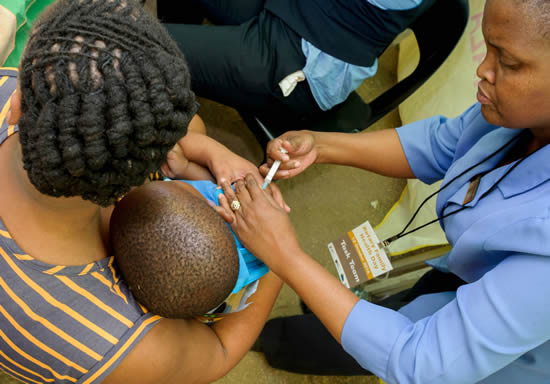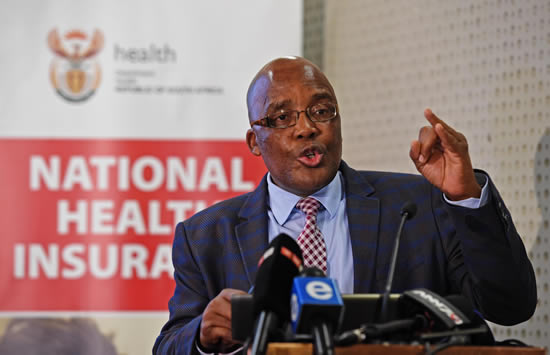The Department of Health’s National Health Insurance is a plan to make healthcare available to all South Africans by improving the quality of clinics, hospitals, staff and equipment across the country.
The Department of Health recently published its policy document on the National Health Insurance system. This lays the groundwork for South Africa to move forward to health care for all.
The Minister of Health, Dr Aaron Motsoaledi, believes all South Africans deserve free and equitable access to healthcare. He has argued that the 45 million South Africans, mainly poor, rural and black, who rely on the overburdened public health system deserve the same quality of healthcare as fellow citizens who can afford private healthcare. 
Universal coverage
The proposed National Health Insurance (NHI) aims to integrate the efficient, but expensive, private health sector with the improving but overloaded public health system. Since 2011 this model has been tested in 11 pilot projects across the country.
This is the preparation period, when the department can test its infrastructure and financing models. Once national rollout begins, it could take up to 14 years to achieve universal coverage. The minister explained in October last year: “We are preparing the clinics in terms of infrastructure, human resources, primary health care and in terms of equipment.”
At its heart, the NHI is a finance model that pools funds to provide the same quality health services to all South Africans no matter their economic circumstances or where they live. In October 2016 the minister told delegates at the South African Pharmacy Conference that the NHI does not aim to replace private healthcare with a “poor public healthcare system that is corrupt, inefficient and unable to deliver”.
Through the 11 pilot projects, the department is refining its ability to utilise and allocate resources better. The NHI is designed to provide essential care no matter where you live with private medical aids covering specialised treatment.
“We know you cannot have sound economic growth without a good healthcare system,” the Minister said. “You cannot end poverty, unemployment and inequality with poor healthcare systems.”
Pilot project achievements
Since 2011 all districts have raised the quality of their healthcare services and facilities to meet standards set by the national department.
Pilot projects have made it easier to identify shortages of specialists and helped to develop systems to identify shortages before they become critical. This has allowed National Treasury to build better funding models for the whole programme.
The quality of maternal, neonatal and child services have been raised. In the pilot districts, for example, 95 per cent of targeted girls have received the HPV vaccine.
In nine pilot districts, the department has funded a minimum of 180 000 GP clinic hours. This is equal to two million doctors’ visits or one million people having access to primary healthcare.
Some 38 000 patients have benefitted from the Central Chronic Medicines Dispensing and Distribution Programme, developed and being tested in the pilot areas. It reduces shortages of medication and cuts down waiting time for medicines at clinics.
E-Health initiatives that have been tested or developed for the programme include the Health Patient Registration System, which standardises patient registration across all health facilities using ID numbers as unique patient identifiers.
Integrated school health
The NHI includes basic health outreach services like the Integrated School Health programme (ISHP). At the end of 2016 at least 80 per cent of school health teams had begun working in pilot areas. These teams work between districts, including those not included in the pilot programme.
In one six month period the ISHP teams identified 54 238 children with health-related leaning disorders. Learning difficulties were picked up by optometrists, speech therapists and hearing therapists.
The Ideal Clinic
As part of NHI planning, the department has developed its Ideal Clinic Initiative. It sets standards in healthcare and staffing, sets levels for equipment and offers a standardised package of services to patients, who are treated with dignity.
- Ideal Clinics will offer community-based health promotion and disease prevention programmes.
- They are adequately staffed to reduce waiting times.
- They offer a comprehensive package of health services based on each community’s needs.
- They have basic necessities available – including chronic medication – and are able to refer patients to higher levels of care in good time.
- They have automated health information systems.
- They have developed alternative sites for medicine distribution.
At the end of 2016, 1 068 of 3 507 clinics in the pilot projects were characterised as Ideal Clinics.



 Facebook
Facebook Twitter
Twitter WhatsApp
WhatsApp